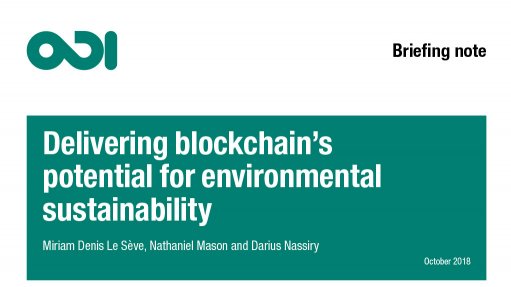
By placing trust and authority in a decentralised network, rather than in a powerful central institution, blockchain – the technology underlying Bitcoin and a growing number of financial and non-financial use-cases – could reconfigure how we assign, protect and transfer many assets and services, including in the natural environment.
In the decade since blockchain was developed as the technology behind Bitcoin, several pilots and a few larger-scale projects have sought to apply it to various global challenges – from voting and identity to health. While there is, as yet, little hard evidence on blockchain’s ability to address environmental problems at scale, its enthusiastic uptake reflects broad potential at a conceptual level.
This briefing note explores the following questions:
- What kinds of environmental sustainability challenges might blockchain address?
- What are the considerations to harness blockchain as a positive force for environmental sustainability?
- What steps are needed to help achieve the potential?
The briefing recognises the scope of blockchain’s disruptive potential, while also acknowledging key barriers to efficacy, uptake and scaling – and proposes, where possible, solutions to these challenges. Drawing on interviews with experts, discussions from a consultative roundtable and a desk review, this study is intended for a broad audience interested in development, environmental sustainability and technology. The authors address their main recommendations to governments of low- and middle-income countries that seek to harness blockchain, as well as providing additional recommendations for governments of wealthier countries and businesses and start-ups that may be developing blockchain applications.
Report from the Overseas Development Institute